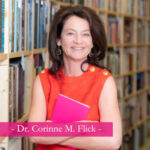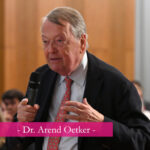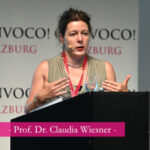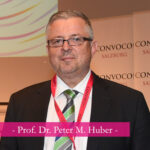
The Multiple Futures of Capitalism (2019) by Corinne M. Flick (ed.)
In 2018 we could not foresee how much our world would change. Back then, Convoco analyzed capitalism’s future. In light of the current developments, I recommend giving this Convoco Editions another read.

Joseph and His Brothers (2005) by Thomas Mann

The Plague (1950) by Albert Camus
A classic novel that I have owned for a while and have now read given the current situation. It discusses the fundamental questions of life, death, and the limits of human agency during a pandemic.
Eurotragedy. A Drama in Nine Acts (2018) by Ashoka Mody
I read this book for my own ongoing research. It discusses the history of European monetary integration and its problematic construction which took critical effect during the financial crisis. Mody insightfully links the observations of different actors, events, and actions to a robust analysis of their consequences. In doing so, he offers a refreshingly non-European perspective on the internal European, fiscal, and ideological conflicts that are part of the problem, and not its solution.

Destined For War. Can America and China escape Thucydides’ Trap? (2017) by Graham Allison

The Innovator’s Dilemma. When New Technologies Cause Great Firms to Fail (2016) by Clayton Christensen
A classic book for understanding what “disruption” really means.
The Future is Faster than You Think. How Converging Technologies are Transforming Business, Industries, and Our Lives (2020) by Peter H. Diamandis and Steven Kotler
Progress is driven not only by new technologies themselves but also by their convergence.
Competing in the Age of AI. Strategy and Leadership When Algorithms and Networks Run the World (2020) by Marco Iansiti and Karim R. Lakhani
An excellent insight into how artificial intelligence will change companies, and how companies will need to be transformed in the age of AI.
Factfulness. Ten Reasons We’re Wrong About The World – And Why Things Are Better Than You Think (2018) by Hans Rosling
A clever account of why we should orientate ourselves more towards facts when assessing today’s world and that of the future.
My Life with Wagner (2017) by Christian Thielemann
Not just for fans of Wagner.

The Innovators: How a Group of Hackers, Geniuses, and Geeks Created the Digital Revolution (2014) by Walter Isaacson
In the current crisis everyone benefits from the innovations created by digitalization. But how do ground-breaking inventions come about? Through individuals’ brilliant ideas or through collaboration within a team? These questions are at the heart of this very entertaining story about the invention of the computer and the beginning of the digital revolution. The book discusses various milestones in the history of technology and draws attention to the importance of the state in this process. We learn about the patent disputes of the inventors of the microchip and how monopolistic AT&T stifled the development of the internet until the US competition authorities levelled the playing field through the use of modems. And we learn who profited from the insight that the greatest potential wasn’t to be found in hardware, but in the flexible programming of hardware. Exciting, informative, entertaining.
The Mirror and the Light (2020) by Hilary Mantel
Finally, the last book in the Thomas Cromwell trilogy has been published. It is once again a great joy to immerse oneself in the world of Thomas Cromwell, Henry VIII’s Chancellor of the Exchequer, particularly because the book is written from Cromwell’s perspective in plain, no-frills language.
Girl, Woman, Other (2019) by Bernadine Evaristo
This is the book for which Bernadine Evaristo received the Booker Prize as the first black, female author. It is a portrait of 12 very different female characters, most of whom live in contemporary London, whose stories often reach back many decades and whose fates are loosely intertwined. Through these portraits, Bernadine Evaristo allows us to gain some understanding into what it means to find your own way and identity as a black girl or woman. In many respects, this book has proven to be eye-opening for me.

Doing Capitalism in the Innovation Economy (2018) by William H. Janeway
The Prize: The Epic Quest for Oil, Money and Power (2009) by Daniel Yergin
Elon Musk: How the Billionaire CEO of SpaceX and Tesla is Shaping our Future (2016) by Ashlee Vance and Elon Musk

Society of Singularities (2020) by Andreas Reckwitz
…because it provides a plausible theory for the increasing upheavals within our Western societies.
Little Man, What Now? (2019) by Hans Fallada

Becoming (2020) by Michelle Obama
Freedom from the Known (2010) by J. Krishnamurti
The Guest Cat (2014) by Takashi Hiraide

The Bibel (o.J.) by Unknown Author
A Fine Balance (2006) by Rohinton Mistry
All of His Writings (o.J.) by Jorge Luis Borges
The Unfolding Of Language. The Evolution of Mankind’s Greatest Invention (2006) by Guy Deutscher
A History of Private Law in Europe: With Particular Reference to Germany (1996) by Franz Wieacker

The Red Book (2018) by Carl G. Jung
How to Live Together (2013) by Roland Barthes
Édouard Glissant

Our Man. Richard Holbrooke and the End of the American Century (2019) by George Packer
A masterful portrait of a brilliant but very controversial US diplomat set against the backdrop of the rise and fall of American influence in the world.
Thomas Cromwell. A Revolutionary Life (2019) by Diarmaid MacCulloch
The ultimate Cromwell biography authored by the renowned Oxford historian—for all fans of Hilary Mantel’s fantastic novels.


